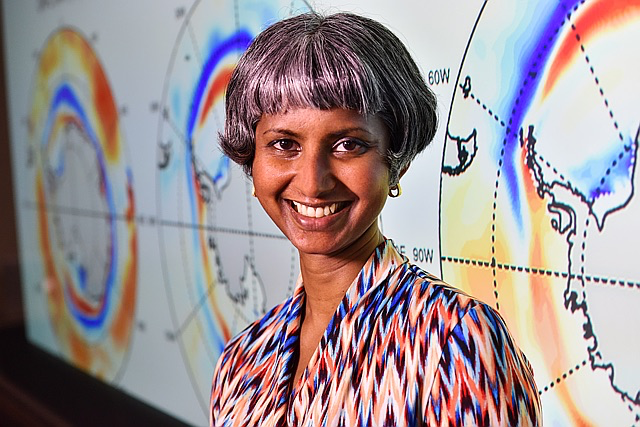Postdoctoral Position in Arctic Amplification
Published:
We are looking for a postdoctoral researcher to join our group, as part of a larger collaborative effort with UC Santa Cruz and US DOE’s Pacific Northwest National Laboratory on understanding the role of extreme moisture transport events in amplified Arctic warming with climate change. Please apply by May 31, 2023 for full consideration for this position.
Postdoctoral Position in Arctic Amplification
We invite applications for a postdoctoral fellowship in Arctic amplification. This work is part of a collaborative project funded by the US DOE on the role of extreme moist transport events as a hypothesized driver of Arctic amplification. The postdoctoral scholars will conduct novel numerical water tracer and/or radiative-locking experiments in the Energy Exascale Earth System Model (E3SM) to investigate the provenance of moisture intrusions and how they promote water vapor and cloud feedbacks over the Arctic, hastening sea ice retreat.
Ideally, the successful candidate to have the following background and expertise:
- A PhD in Atmospheric Sciences, Physical Oceanography, Applied Mathematics, or a related field.
- Knowledge of extratropical dynamics and/or polar climate; and
- Demonstrated experience modeling and coding, as well as working with large, complex datasets.
We especially encourage applicants with expertise in running and configuring global climate models, such as CESM, E3SM, or another state-of-the-art Earth system model.
The postdoctoral scholars will join a vigorous research team coordinated by Profs. Hansi Singh (School of Earth and Ocean Sciences at the University of Victoria, Canada) and Nicole Feldl (University of California, Santa Cruz), with additional collaborators from the Pacific Northwest National Laboratory and the University of Washington. Prof. Singh will be the primary supervisor, with further mentoring provided at University of Victoria by Prof. Colin Goldblatt.

Figure: Visualization of daily moisture transport into the Arctic over October, November, and December. The left panel shows the daily temperature anomaly (relative to the monthly climatology), the middle panel shows the column-integrated water vapor, and the right panel shows the source of that vapor on a 10 by 10 degree grid, over the entire northern hemisphere. From a pre-industrial control experiment performed in CESM1 by PhD student Kyle Heyblom.
The postdoctoral fellow will sit at the School of Earth and Ocean Sciences at the University of Victoria on beautiful Vancouver Island in British Columbia. The postdoctoral fellow will also be able to interact locally with scientists at several nearby research centres, including the Canadian Centre for Climate Modeling and Analysis (CCCMA), the Pacific Climate Impacts Consortium (PCIC), and the Pacific Institute for Climate Solutions (PICS). Funding is available for up to three years (with continued funding subject to a yearly performance review).
The position will include a competitive salary and a full benefits package (including an allowance for relocation). We especially encourage applications from members of groups experiencing barriers to equity in the physical sciences (women, under-represented minorities, LGBTQIA individuals, persons with disabilities).
Please contact Prof. Hansi Singh (hansingh@uvic.ca) with questions. Interested applicants should submit the following material to Prof. Singh as a single pdf file: (1) a cover letter that summarizes the applicant’s research experience, qualifications, and interest in the position, (2) an up-to-date CV, and (3) contact information for three professional references. Applications will be reviewed starting May 31, 2023, and will be accepted until the position is filled. The ideal start date is September 2023.
